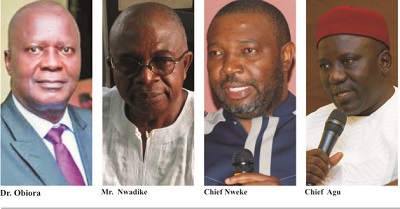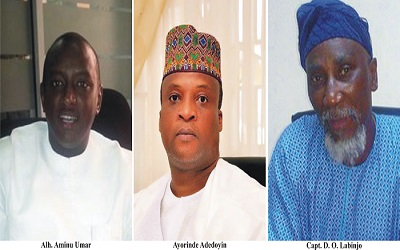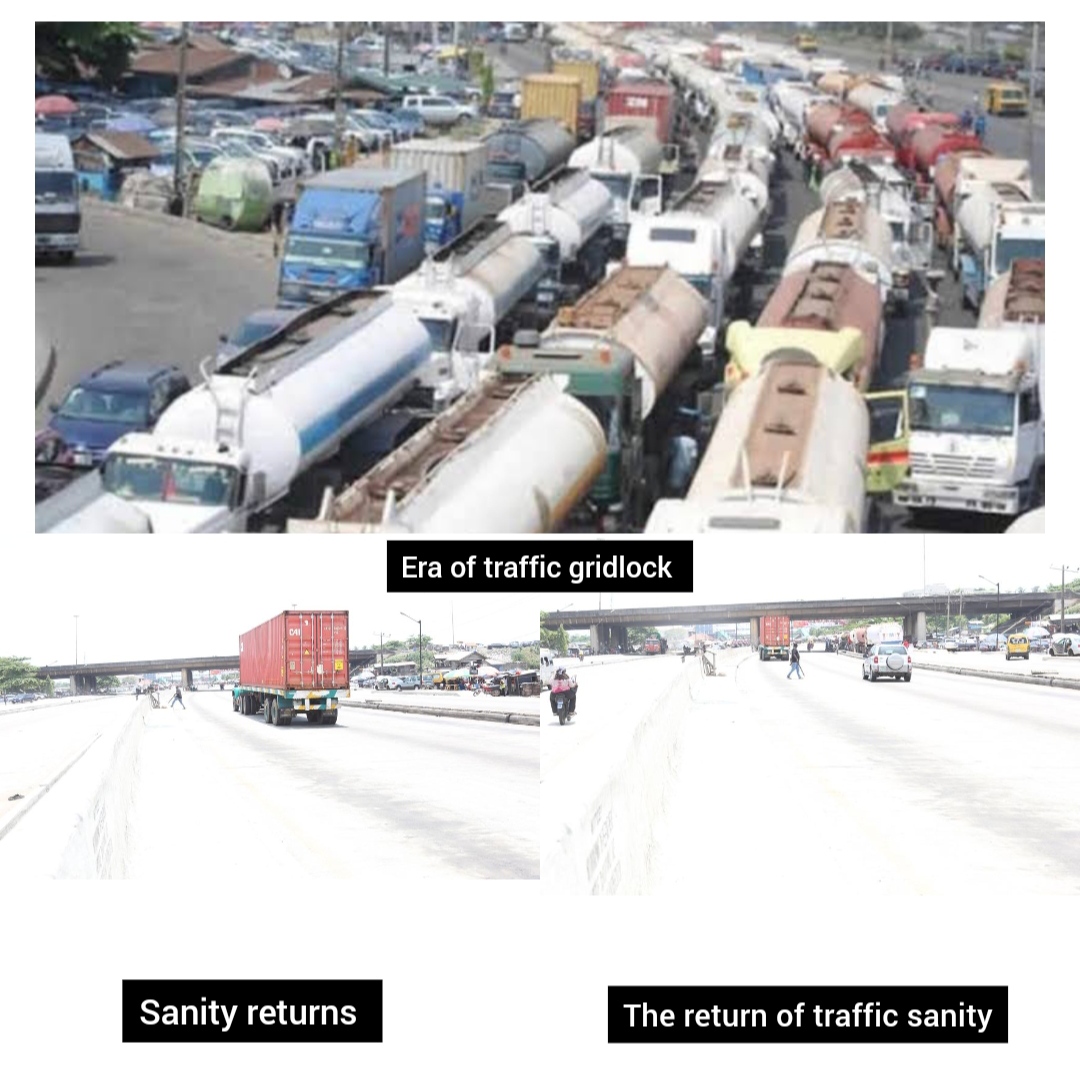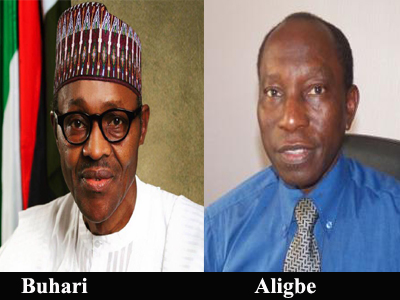Rising Port Costs & Charges: Maritime Stakeholders Play Blame Game
As part of efforts to find the headway to the numerous problems confronting Nigerian ports which has led to increased port costs and charges, the third edition of the Taiwo Afolabi Annual Maritime (TAAM) conference focused on the topic; “Port Costs & Port Charges: A Recurring Decimal Under Ports Reform Regime”
The conference, held in honour of Dr. Taiwo Afolabi, Group Executive Vice-Chairman, SIFAX Group, is an initiative of the Maritime Forum, University of Lagos (UNILAG) and SIFAX Group. The third edition of TAAM which held yesterday, was chaired by Chief Adebayo Sarumi while Otunba Kunle Folarin delivered the keynote address.
Eminent maritime industry leaders, legal experts, academics, and university students converged to discuss the possible solutions to the persistent increase in port costs and charges but the conference later turned into an arena to trade blames.
The Federal Government and the key players in the port concession where blamed for the lack of an economic regulator at the point of concession. Terminal operators and shipping companies were accused of being irrational for dragging the Nigerian Shippers’ Council (NSC) to court over its economic regulatory powers when arbitration and dialogue should have been viable options.
However, terminal operators insist that the government reneged on its concession promises and agreements especially in the provision of certain basic necessities which ought to have been provided by the government such as electricity, road infrastructure and dredging as in the case of the Calabar port operators. The concession agreement the operators of Calabar port signed with the NPA provides that the lessor (NPA) should maintain the draught at 9.4meters, eleven years after the concession, the draught still remains at 5.4meters at low tide and 6.4meters at high tide which was the same situation when the concessionaires began operations in August 2007.
The port operators maintained that they were in business to make profit and profit is determined by the cost of doing the business. Since the cost of doing the business continues to skyrocket and the factors are beyond them, can one blame these operators for increasing the cost? While the concessionaires were apportioned some degree of culpability, foreign investors were particularly targeted for undermining the nation’s maritime sector.
Read on to find out who said what, why, to who; as the nation’s maritime bigwigs and veterans explained the perennial problems and challenges in the sector from varying prisms.
According to the Group Managing Director, SIFAX Group; Major Henry Ajetunmobi (Rtd), an ideal port reform should be anchored on shared responsibilities of all the players.
He said; “It can’t and shouldn’t be a burden made lighter for one party and heavier for another. When in 2006 the concession took place, there was the expectation that the incoming terminal operators would have certain responsibilities while the Federal Government was to respect its end of the bargain.
“Terminal operators were supposed to meet terminals where the supply of water and electricity would be guaranteed. However, every terminal operator had to put monies which should have gone into operational expenses into generating power for the facilities and providing water. These are additional unanticipated costs on the operators. So, when you talk of political will, this is where you have the nexus between the operator and the government” he added.
Speaking from the freight forwarders perspective, the former President of the Association of Nigeria Licensed Customs Agents (ANLCA) Prince Olayiwola Shittu lamented that there was no dialogue between various stakeholders in the maritime sector.
Shittu recalled that during the eight years while he was the president of ANLCA, the association only succeeded in meeting the terminal operators under the auspices of Seaport Terminal Operators Association of Nigeria (STOAN) on two occasions.
“The benefit of dialogue is that most of the reasons for new charges or increase in charges could be demystified. Other stakeholders have a right to know why those charges arise. None of us (maritime stakeholders) would be in business without the shipper or importer. Without the importers, there would be no cargo and without cargoes there would be no vessels and consequently there would be no terminals or ports.”
“Although I’m sympathetic towards the economic downturn of activities but there is need to have platforms where each stakeholder explains where the actions of the other operator hurts financially and operationally. Freight forwarders ought to understand why certain demurrage must be paid because this industry is litigation based in other climes” he said.
He also recalled his contributions in one of the presidential committees on port reforms. “I recall that I was in the committee that recommended five smart steps to cargo clearance. If that recommendation had been implemented, majority of the problems at the ports would have been eliminated so the government equally should be blamed” he said.
Shittu maintained that ANLCA disagreed with the government on the modalities for the concession when it was been developed in 2006 because they believed the whole of the ports in Lagos shouldn’t have been allocated to more than two operators.
“The ports were cannibalized like a bazaar for political considerations and rather than get competition to drive down the cost and build up efficiency, we can see that only indigenous operators are doing better than the foreign operators. At a point we challenged the Central Bank of Nigeria (CBN) on the Direct Foreign Investment because we wanted to know how much comes in. The difficulty in the ports today rests with the much celebrated foreign expertise in the concession” he queried.
Observing that the emphasis had been on the regulator, the Executive Secretary of NSC, Mr. Hassan Bello who was represented by the Deputy Director, Enforcement and Compliance, Chief Cajetan Agu, pushed the blame to the pioneers of the concession agreement who made no provision for a regulator at the onset.
He said; “I have observed that the emphasis has been on the regulator. However, recall that there was no regulator after the concession of the ports in 2006. The terminal operators were allowed to operate for eight years without regulation. In 2014, the government appointed NSC as the port economic regulator and the Council made concerted efforts to dialogue with the operators including shipping companies, terminal operators, freight forwarders, among others in the industry”
“The first attempt that the Council made through its regulatory mandate to bring sanity into the sector met stiff opposition as the Council was dragged to court by both the terminal operators and shipping companies. I believe that the actions by the shipping companies and terminal operators were wrong. In a sector where we want to make progress, recourse to courts isn’t the best. There was room for dialogue and Alternate Dispute Resolution (ADR) because I’m sure the matter would have been resolved a long time ago if the issue had been referred to the arbitrators. As I speak to you the case is still pending at the supreme court.”
However, he expressed confidence in suggestions on the need to establish an effective and sustainable platform for the regulation of tariffs, even as he stressed the need to embrace automation.
“NSC is going to get stakeholders involved in the platform to regulate tariffs but the major impediment to the Council is the issue of the court case” he added.
Meanwhile, in the lead presentation, Otunba Folarin postulated some strategies to reduce port cost. They include; deliberate government policies to reduce customs duties and taxes, set up an effective and efficient single window platform and regulate the port and shipping services and costs.
He also proposed the establishment of a port community system as a framework for stakeholder dialogue to improve service quality and reduce costs; even as he encouraged the introduction of Public-Private Partnerships (PPPs) in port business.
Some golden rules for positive change to regulate port costs and charges posited by Otunba Folarin include; political will, transparency, an all inclusive port reform, improved laws to promote port productivity, fair trade and competition.
He also stated that the landlord model operated by NPA should be administered in a very technical, ethical and objective structure as the concessionaires weren’t replacing the responsibilities of the Port Authority.
He admonished NPA to monitor performance and compliance of their obligations as well as those of the concessionaires and other service providers; while he urged terminal operators to consent to annual operational plans that could be measured.
Otunba Folarin also called for automation and preached the jettisoning of corruption.
Meanwhile, in his opening speech, Dr. Taiwo Afolabi stressed that he expected an enthusiastic engagement on the topic not a scenario were the deliberations stopped at the level of heat only but lead to an intellectual discourse and analysis from veterans in the maritime sector to shape the necessary policy formulation by regulatory agencies.
The SIFAX boss, who was represented by his daughter, Ms. Mariam Afolabi had asked rhetorically “by what percentage will the cost of services be adjusted upward to reflect the astronomical changes in the foreign exchange regime?”
While the chairman of the occasion, Mr. Adebayo Sarumi had lamented that the maritime industry was detached from the university, the law students must have been thrilled to listen to the multiple challenges at the nation’s ports.
Indeed, there is a lacuna in the maritime sector and bridging this gap between the academic institutions and the industry is one way to search for solutions. Dr. Afolabi deserves hearty commendations for taking the initiative to give back to the university where he is an alumnus. A university is a high-level educational institution in which students study for degrees and academic research is done. There isn’t a better place to take the excruciating problems of the nation’s maritime sector than universities.








